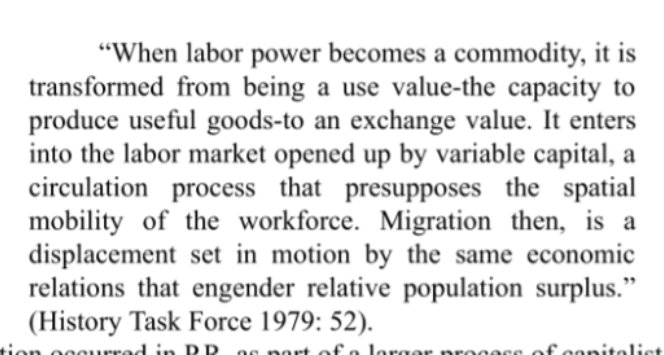this post was submitted on 17 Oct 2023
43 points (100.0% liked)
marxism
3670 readers
1 users here now
For the study of Marxism, and all the tendencies that fall beneath it.
Read Lenin.
Resources below are from r/communism101. Post suggestions for better resources and we'll update them.
Study Guides
- Basic Marxism-Leninism Study Plan
- Debunking Anti-Communism Masterpost
- Beginner's Guide to Marxism (marxists.org)
- A Reading Guide (marx2mao.com) (mirror)
- Topical Study Guide (marxistleninist.wordpress.com)
Explanations
- Kapitalism 101 on political economy
- Marxist Philosophy understanding DiaMat
- Reading Marx's Capital with David Harvey
Libraries
- Marxists.org largest Marxist library
- Red Stars Publishers Library specialized on Marxist-Leninist literature. Book titles are links to free PDF copies
- Marx2Mao.com another popular library (mirror)
- BannedThought.net collection of revolutionary publications
- The Collected Works of Marx and Engels torrentable file of all known writings of Marx and Engels
- The Prolewiki library a collection of revolutionary publications
- Comrades Library has a small but growing collection of rare sovietology books
Bookstores
Book PDFs
founded 4 years ago
MODERATORS
you are viewing a single comment's thread
view the rest of the comments
view the rest of the comments

Fungibility is the key to this form of commodification. Can the worker simply be replaced by purchasing another's time on "the labor market?" If so, that's what this section is describing. This is in contrast to, for example, an artisinal form of employment that requires years of learning and apprenticeship and is extremely limited in availability. No matter how much an employer wants to replace such a person, if there's no one else, they are stuck.
The commodification of labor is a boon to the employers that develop it. If you can operate your business with less training you will spend less money on the training itself and can discipline labor by threatening to replace them from the reserve army of labor (the employed and underemployed). This drives down your labor costs. Other employers see this and do the same. Labor becomes mobile because of the need to look for work to survive and because the jobs available do not require artisinal training to get started.
Machinery and automation are good examples of how this works, albeit incompletely. They decrease labor costs directly, of course, because a human can spend less time making a thing with a machine (at the cost of buying the machine instead). They also tend to decrease costs by decreasing the training time required for most of the labor. Working a machine that creates form-molded Crocs is more accessible than becoming an expert cobbler. This story is incomplete because now there is a need for labor to create and maintain the machine, but this, too, then faces its own commodification. It's all happening everywhere all at once.
An example of the Russian nesting doll of commodification along with machines is what tech nerds do. They're often 5-8 levels up from the process of actually creating tangible commodities, including services. A tech worker might maintain a piece of software that makes it easier for other businesses to deploy software and the next-closest business deploys software on it that makes it easier for businesses to communicate sales to one another and the next-closest business there is selling an inventory management system that tracks what stuff they have to sell which is just a more convenient and labor-saving version of a paper ledger. As you descend the chain, commodification of labor increases.
At the top is the bespoke tech nerds, but their labor value is still always a target. This is why big tech consortia push for "STEM". They want to increase their reserve pool of labor and thus make it more of a commodity.